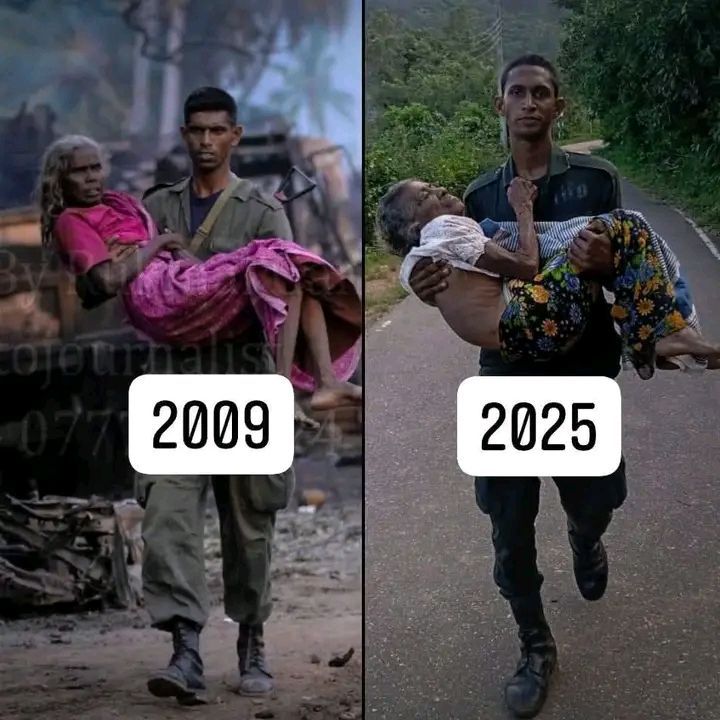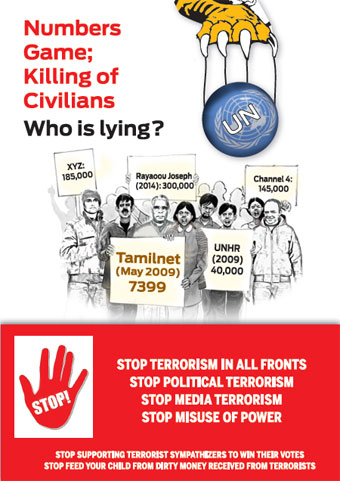16A removed Sinhala as country’s Official Language
(Courtesy of The Island)
I refer to the two articles of Kalyananda Tiranagama, Executive Director, Lawyers for Human Rights and Development, under the titles “Is Sinhala the Official Language of Sri Lanka” and “How Premadasa turned the Official Language Policy upside down” in The Island dated 28th and 29th July respectively.
The articles quoting typical examples of the plight the Sinhala people in the North and the East are facing today, gave a detailed account analysing how the crafty Tamil and Muslim politicians in the North and East got the relevant Constitutional provisions changed to suit them, by extending the support to the power-hungry politicians in the South.
As stated by Mr Tiranagama, the people in our country, including the politicians and the political parties in the South, may believe that Sinhala is the Official Language of Sri Lanka applicable throughout the country. But the Tamil and Muslim politicians in the North and the East know that it is not the case.
We have seen several articles and heard many speeches expressing the harmful effects of 13th and 19th Amendments to the Constitution and why those should be repealed or replaced. Unfortunately, people in our country, including most of the current politicians in the South, seem unaware of the contents of the 16th Amendment or its repercussions which was introduced in December 1988, just 2 days prior to the Presidential Election, when disappearances, abductions and killings were the norms of the day during the infamous ‘Bheesana Samaya’ in late 80s.
Thus, we must be grateful to Mr Tiranagama for educating the readers on this important subject and its impact on the general public, and thankful to The Island newspaper for publishing the said valuable articles https://island.lk/is-sinhala-the-official-language-of-sri-lanka-i/ and https://island.lk/how-premadasa-turned-the-official-language-policy-upside-down/
Sinhala remained the Official Language of Sri Lanka continuously for 32 years from 1956 to 1988. Although Tamil was also made an official language in 1987 under the 13th Amendment, it did not relegate the status given to Sinhala as the Official Language of the whole country.
As per the 16th Amendment made in 1988, Sinhala language, in effect, is no longer The Official Language or the language of administration throughout Sri Lanka. It is only an Official Language, in the sense that it is the language of administration in seven provinces other than the Northern and Eastern Provinces, whereas Tamil can be the language of administration throughout Sri Lanka in addition to its Official Language status, since there is no limitation imposed on its application as in the case of Sinhala. Sinhala is no longer the language of administration throughout Sri Lanka.
As stated in the article, this has resulted in the denial of the rights of tens of thousands of Sinhala speaking people in the Northern and Eastern Provinces in Sri Lanka from conducting communications with Provincial administrations and local authorities in their national language and placing them in great difficulty, compelling them to transact their communications with public institutions in Tamil, a language they are not conversant with.
The articles also state how the provisions of the 16th Amendment paved the way for the creation of minority linguistic ethnic units at the Divisional Secretariat level, using languages different from the language of administration in the province as the language of administration for such areas. The said articles reveal, citing examples, how racist politicians of ethnic and religious minority political parties, have bargained and are continuing, step by step, to do so with the power-hungry political leaders in the South, during election times.
As I remember, Dr. Colvin R de Silva, deputy leader of the LSSP who opposed the Official Languages Act in 1956, said that one language would result in two countries. What is really happening today is that two languages in one country are gradually paving the way for resulting in two countries at the end.
By S. Akurugoda
44 Viewers








